In an effort to innovate educational governance, the policy of not organizing School Councils at public educational institutions and implementing the model of Party Secretary concurrently being the head in Resolution No. 71-NQ/TW is receiving consensus from educational administrators and teachers.
Strategic move
The regulation to abolish the School Council in public educational institutions in Resolution No. 71-NQ/TW is considered a strategic step, affirming the comprehensive and direct leadership role of the Party organization, aiming for an effective, streamlined and substantial education.
Streamlining the apparatus and eliminating organizational overlaps helps improve leadership effectiveness, ensure unity in management, and promote the direct and comprehensive role of the Party organization, especially the role of the head of the Party Committee in schools. This is considered a practical step, contributing to promoting the quality of education and public and transparent management.
Mr. Nguyen Phuc Vien - Principal of Cho Gao High School ( Dong Thap ) shared that in reality, the School Council model in many general education institutions has not yet promoted its real role. The School Council structure often includes representatives of local authorities, parents and students. Due to the nature of busy work, government representatives often cannot closely monitor, while students do not have enough capacity and experience to participate in administrative decisions.
This leads to the situation where the School Council's activities are formalistic, overlapping with the roles of the Advisory Council and the Board of Directors, causing waste of resources and time. In that context, not organizing a School Council at public educational institutions is consistent with current management practices. Instead, delegating authority to the Party Secretary to concurrently hold the role of school head will help unify leadership and management, avoiding overlapping responsibilities.
Mr. Nguyen Ngoc Hai - Vice Principal of Ham Rong High School (Thanh Hoa) expressed his opinion that for a long time, the School Council has been an administrative procedure and has been almost ineffective. Schools are not like administrative agencies, mainly doing professional work; therefore, the head has the decisive factor. Having the Secretary also the head will be more consistent, making the work easier and more convenient.
Discussing this content, Ms. Nguyen Thi Dung - Van Coc High School ( Hanoi ) cited the provisions of Article 55 of the 2019 Law on Education. Accordingly, the School Council at public preschool and general education institutions is the school's governance organization, exercising ownership representation rights, and participating in deciding the school's operating direction.
However, most public preschool and general education institutions have not been granted autonomy in finance, organization or personnel. Therefore, the functions and tasks of the School Council in these units are mainly carried out by school leaders or specialized departments, leading to duplication and inefficiency.
Sharing the same view, Mr. Vo Thanh Phuoc - Principal of Nguyen Hue Secondary School (Hai Chau, Da Nang) assessed that the current School Council's activities lack real power, overlap roles and do not create real governance values. The school is not currently given autonomy in finance, personnel or organizational structure, so the role of the School Council is not designed to be linked to practical functions.
“In many schools, the Party Secretary is also the Principal of the school and the Chairman of the School Council. This leads to overlapping roles and blurs the supervisory and critical functions of the School Council. The School Council is almost purely a formality, with functions and tasks that overlap with the school's pedagogical council,” Mr. Phuoc analyzed.
Mr. Nghiem Hong Trung - Principal of Quoc Oai High School (Hanoi) said that in most schools, the Principal is also the Chairman of the School Council and the Secretary of the Party Cell/Party Committee, leading to overlapping roles and blurring the supervisory and critical functions of the School Council.
Maintaining the School Council in that context is not only ineffective but also increases the administrative burden. Therefore, abolishing the School Council regulation in public kindergartens and general schools in the spirit of Resolution No. 71-NQ/TW is a necessary step to streamline the apparatus and increase implementation effectiveness.
According to Mr. Bui Duy Quoc - Principal of Nguyen Binh Khiem Secondary School (Hoa Khanh, Da Nang City), before passing the School Council meeting to decide on important strategic contents, the Board of Directors met to orient, then asked for opinions from the Party Committee and Party cell, and finally passed it to the entire Pedagogical Council. Going to the School Council is almost just a procedure, a formality.

Removing administrative bottlenecks
In higher education, the Council is designed to exercise autonomy, separating political leadership and administrative management, helping to reduce the concentration of power in the President. However, in reality, at many public universities, the University Council has become a bottleneck in governance.
Prof. Dr. Nguyen Quy Thanh - Rector of the University of Education (Hanoi National University) commented that Resolution No. 71-NQ/TW has ended the long debate on the role of the university council in public universities. This solution is a strong adjustment to increase the effectiveness of direction.
Dr. Nguyen Minh Anh Tuan - Principal of Tan Trao University also expressed his strong agreement with the policy of not establishing a University Council, except for some schools with international affiliations, which is very appropriate and consistent with current practice.
“I used to be the Chairman of the University Council and then transferred to the position of Principal. I found that the activities of the University Council are often formalistic, repeating issues that other agencies have already resolved, especially the work of organizing staff. In addition, the current University Council has external and internal members, but in reality, not all external members fully understand university education. They do not even understand the characteristics of each university. Because each school has different characteristics. Therefore, abolishing the University Council is very appropriate,” Dr. Nguyen Minh Anh Tuan shared.
Regarding this content, Associate Professor Dr. Bui Anh Thuy - Dean of the Faculty of Law, Van Lang University also commented that the implementation of the School Council has not achieved the initial expectations. At many higher education institutions, the School Council only exists in name, operates in a formal manner, is ineffective and has not really taken on the role of governance. Many members of the Council hold concurrent positions, are often busy, rarely participate in meetings; when participating, they have not made any substantial contributions to the important decisions of the school.
In addition, the provisions on the duties and powers of the School Council in the law are not really clear, leading to different understandings and implementations among schools, causing overlap in management. The parallel operation of the power institutions of the Party Committee and the School Council in some situations has given rise to conflicts and disagreements, delaying the decision-making process and affecting the effectiveness of governance. In particular, the School Council model is not suitable for schools belonging to the armed forces, leading to difficulties in deployment and enforcement.
The above factors pose an urgent need for substantial changes in the role and position of the University Council in public universities, in order to ensure effectiveness, relevance and consistency in the governance of the higher education system.
Assoc. Prof. Dr. Bui Anh Thuy emphasized: Resolution No. 71-NQ/TW has set clear goals to reform the governance model in public universities. Accordingly, streamlining the apparatus and improving management effectiveness is demonstrated through orientations to reduce administrative procedures, eliminate cumbersome processes, speed up decision-making; concentrate power on a single leadership point, thereby enhancing the personal responsibility of the head; create unity in leadership, minimize conflicts and overlaps, ensure smooth and effective operation. The Resolution has provided specific directions for the entire political system, authorities at all levels and public higher education institutions. However, this important change also raises many issues that need to be carefully considered to ensure effective implementation.
To successfully implement Resolution 71/NQ-TW, Associate Professor, Dr. Bui Anh Thuy said that the State needs to promptly review and synchronously amend related laws such as the Law on Education, the Law on Higher Education, and the Law on Vocational Education, in order to create a solid legal corridor for the new governance model.
It is necessary to build a clear and effective monitoring and accountability mechanism to ensure the responsibility of the head and transparency in operation. Despite the change in model, substantive autonomy must still be guaranteed, because it is a key factor for the development of higher education.
Source: https://giaoducthoidai.vn/khong-to-chuc-hoi-dong-truong-tinh-gon-bo-may-han-che-chong-cheo-post747942.html










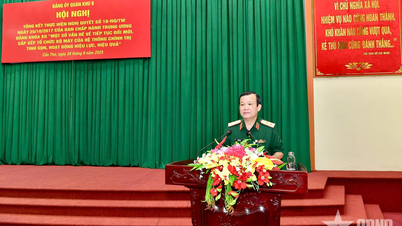

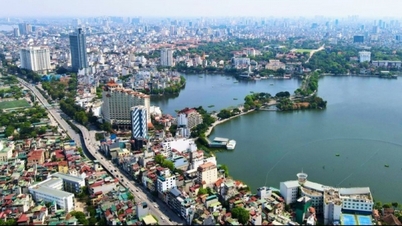







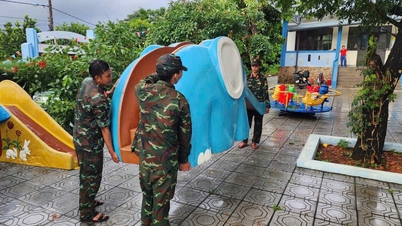

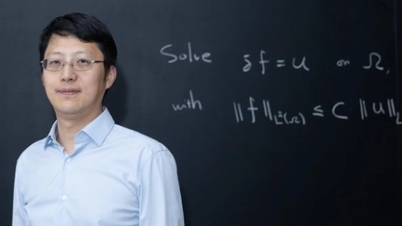












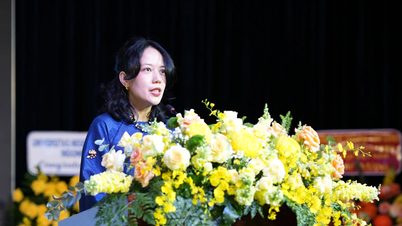

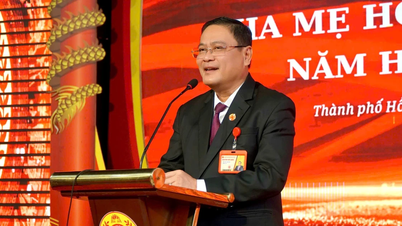
![[Photo] Soldiers guard the fire and protect the forest](https://vphoto.vietnam.vn/thumb/1200x675/vietnam/resource/IMAGE/2025/9/27/7cab6a2afcf543558a98f4d87e9aaf95)

























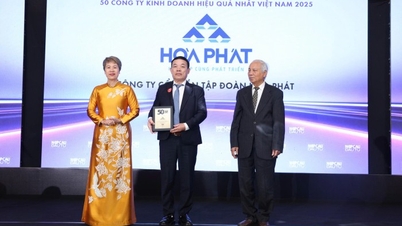






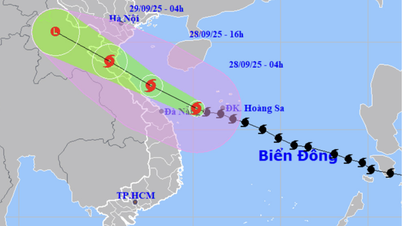

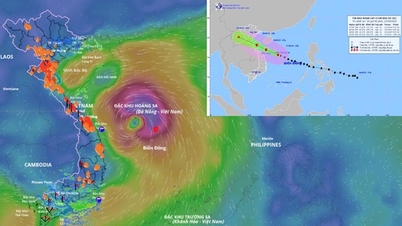


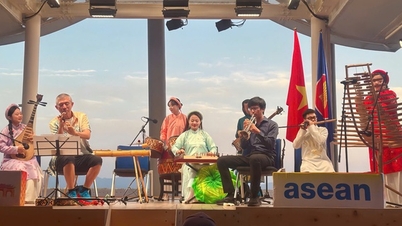


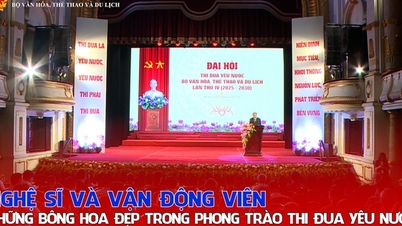







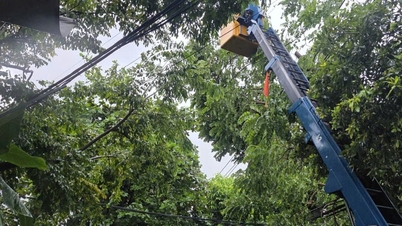


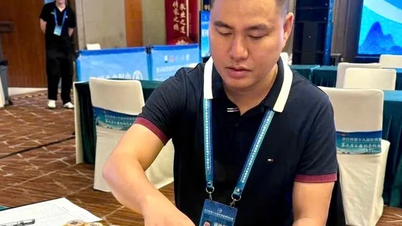













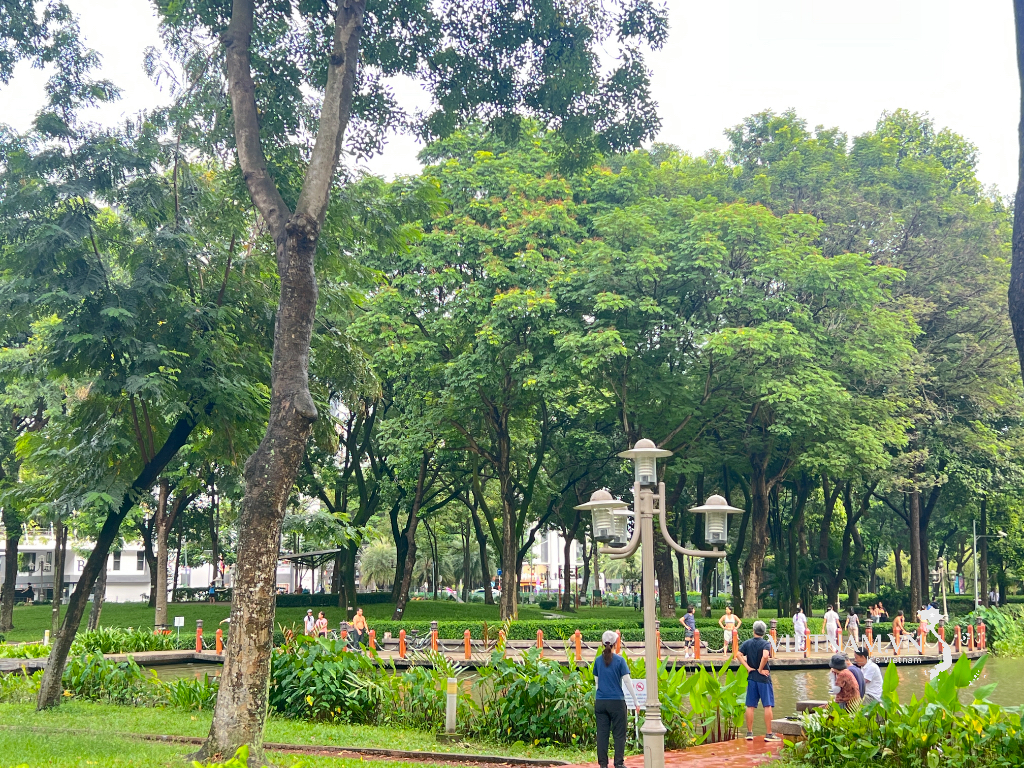

Comment (0)